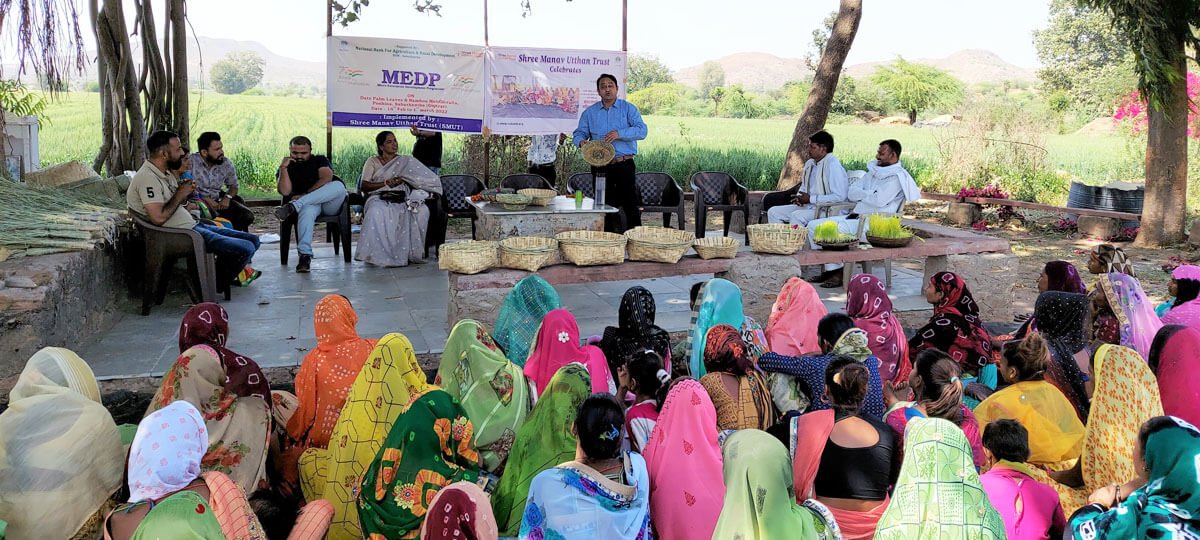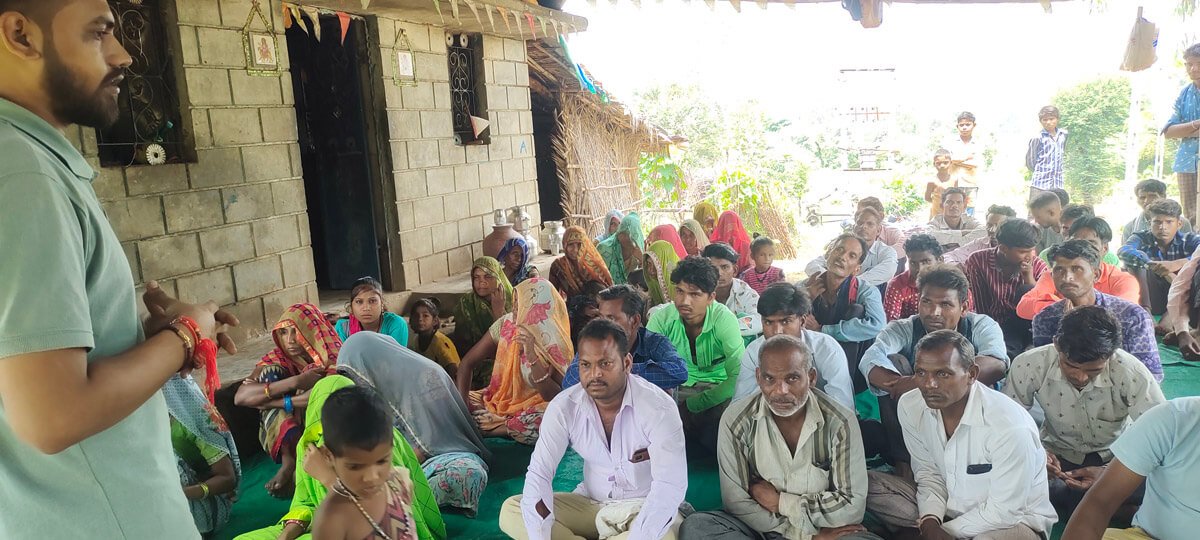Livelihood
The Economic development program ishas to be run by providing the family any source of earning the livelihood or making them help themselves by creating the resources around them from which, they can earn better livelihoods. The other major aspect of this sector is providing sustainable resources i.e., the sources provided or the resources created have to be sustainable. Micro-credit program and income-generating activities allow families to start small, family-run businesses through low-interest loans and training., some of the programs done by the organization under this head are goat rearing & poultry, vegetable plots, various skill training program and providing kits of mason, cycle repairing, etc.
01. Micro Enterprise Development
In the Bamboo and date palm leaf product-making program, 40 women from six villages of Jotasan Panchayat, Poshina block, Sabarkantha, underwent a 15-day training. The trainers taught them to create various products such as brooms, bowls, baskets, etc. After completing the training, all the women started their own production and are now earning three to four thousand rupees per month by selling these products. This newfound income has made these women self-sufficient and has enabled them to contribute financially to their families.
02. Goat Based Livelihood Training Program
The tribal community was provided training on sustainable practices of Goat rearing, aimed at generating regular income. The training program focused on women farmers from 10 villages in the tribal block Poshina, Sabarkantha District. Given that most households in this area are involved in goat rearing practices, the program aimed to equip them with the necessary skills for sustainable and profitable goat farming.
03. Vrittika Training
As part of the horticulture department's initiative, a program was conducted in three villages to help women fill up the Mahila Vrittika scheme form. Individual conversations were held with women participants to help in form filling. In total, 307 women were guided in completing the form, and their necessary documents were collected and submitted to the horticulture department. Additionally, they received training in making pickles, papads, juices, and other products as part of the program.




